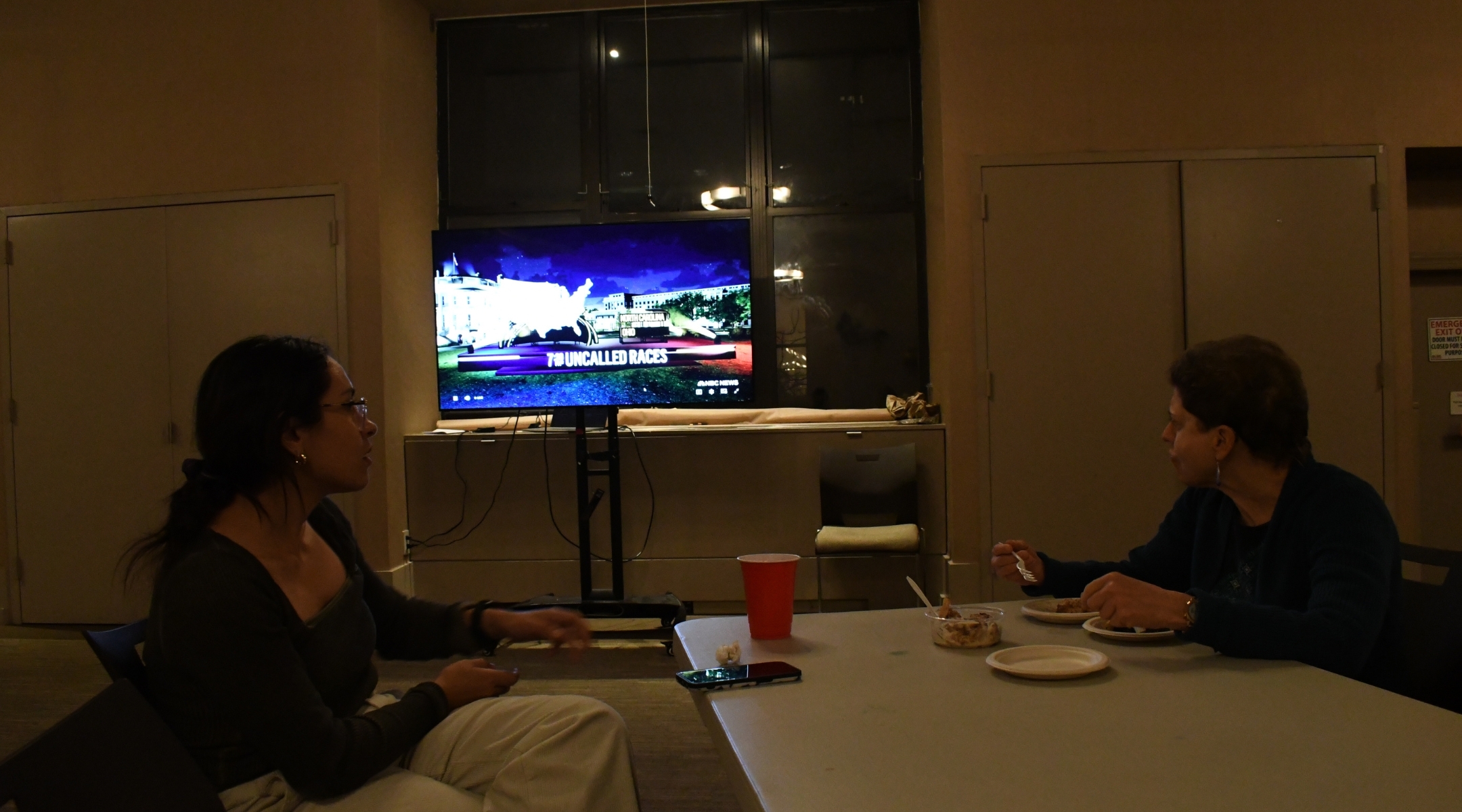There were black and white cookies and herring at an election results watch party in the Upper West Side synagogue social hall. What there wasn’t: pretty much anyone watching.
Ahead of the 2024 presidential election, Lauren Grabelle Herrmann, the rabbi at the Society for the Advancement of Judaism, a Reconstructionist synagogue in New York’s Upper West Side, felt she was in a unique position to provide comfort to her congregants during a particularly fraught political moment.
In addition to emailing out blessings and prayers for voting in this election, leading her community in postcard campaigns to get delisted voters back on the voter rolls, and delivering sermons addressing the polarized American electorate, Grabelle Hermann thought a community election watch party might be a salve for her congregation on a tense night.
But by 7:30 p.m, an hour after the event began and an hour before it was slated to end, only two guests had arrived: one congregant and a reporter from Italy who had arrived in New York City to run Sunday’s marathon and was looking for a place to immerse in the American tradition of watching polls close well before their results would be clear.
Under a historic socialist mural titled “Old and New Elements in Modern Palestine,” which depicts Jewish kibbutzniks working the land and Orthodox men and women praying, was a long table featuring a spread of classic New York Jewish foods, like black and white cookies, lox, and herring — all mostly untouched.
In a city packed with options, synagogues can struggle to turn out a crowd in the best of circumstances. For the Upper West Side’s left-leaning Jews, Tuesday night was not the best of circumstances. While polls showed a tossup nationally between Democrat Kamala Harris and Republican Donald Trump, the majority of states set to report during the event itself were virtually assured of going Republican.
As a religious organization, SAJ and its leadership doesn’t endorse candidates, but Grabelle Herrmann, who voted early last week, said the synagogue takes action in a nonpartisan way. For example, the congregation has a reproductive justice committee and a legal clinic for immigrants seeking asylum — meaning that it’s active on some of the issues dividing the electorate.
“We’re involved in a lot of issues, including the issue of democracy itself,” Grabelle Herrmann said. “We have 36 times in the Torah where we say, ‘to love the stranger,’ ‘to take care of the stranger.’ So to be involved in social justice issues, to me, is a manifestation, expression of Judaism.”
Grabelle Herrmann said she wasn’t deterred by holding an event that went effectively unattended. She said she would spend the night watching what unfolds “and thinking about my community, how people in my community are impacted and affected, and thinking about what we need to do to support our congregants going forward.”
Exactly when the race is over isn’t yet known. In 2020, news organizations didn’t officially call the election between Trump and Democrat Joe Biden until Saturday morning, five days after the election and in the middle of Shabbat morning services for synagogues in New York City. Anticipating the uncertainty, another Upper West Side synagogue, B’nai Jeshurun, located just blocks from SAJ, is hosting a prayer service “for the Neshamah [soul] of our Nation” on Wednesday evening.
Grabelle Herrmann said she would try again to bring her community together after the election is called, when it is time to process the results.
“The tone of that event may vary depending on what happens and where people are sitting with everything,” she said. “But when people are anxious and worried, they need each other and they need community to get through.”
The New York Jewish Week brings you the stories behind the headlines, keeping you connected to Jewish life in New York. Help sustain the reporting you trust by donating today.





